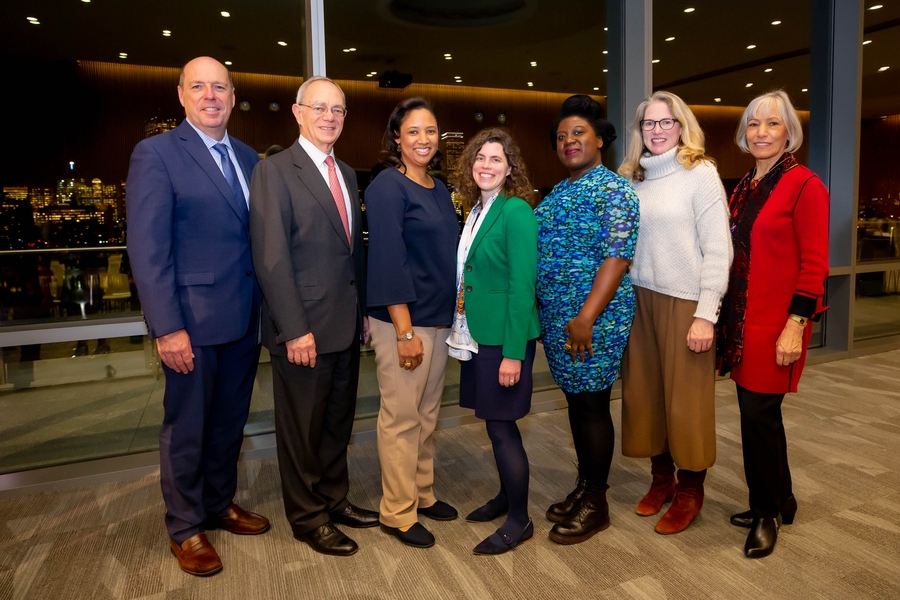Published on: January 21, 2020

Left to right: MIT Provost Martin Schmidt and President L. Rafael Reif stand with 2019 Bose Fellows Kristala Prather, Mary Gehring, and Sandy Alexandre, along with Judy Bose and Ursula Bose. Photo: Rose Lincoln
Now in their seventh year, the Professor Amar G. Bose Research Grants support visionary projects that represent intellectual curiosity and a pioneering spirit. Three MIT faculty members have each been awarded one of these prestigious awards for 2019 to pursue diverse questions in the humanities, biology, and engineering. At a ceremony hosted by MIT President L. Rafael Reif on Nov. 25 and attended by past awardees, Provost Martin Schmidt, the Ray and Maria Stata Professor of Electrical Engineering and Computer Science, formally announced this year’s Amar G. Bose Research Fellows: Sandy Alexandre, Mary Gehring, and Kristala L.J. Prather. … “Many technological innovations have resulted from the influence of literature, one of the most notable being the World Wide Web. According to many sources, Sir Tim Berners-Lee, the web’s inventor, found inspiration from a short story by Arthur C. Clarke titled “Dial F for Frankenstein.” Science fiction has presaged a number of real-life technological innovations, including the defibrillator, noted in Mary Shelley’s “Frankenstein;” the submarine, described in Jules Verne’s “20,000 Leagues Under the Sea;” and earbuds, described in Ray Bradbury’s “Fahrenheit 451.” But the data about literature’s influence on STEM innovations are spotty, and these one-to-one relationships are not always clear-cut. Sandy Alexandre, associate professor of literature, intends to change that by creating a large-scale database of the imaginary inventions found in literature. Alexandre’s project will enact the step-by-step mechanics of STEM innovation via one of its oft-unsung sources: literature. “To deny or sever the ties that bind STEM and literature is to suggest — rather disingenuously — that the ideas for many of the STEM devices that we know and love miraculously just came out of nowhere or from an elsewhere where literature isn’t considered relevant or at all,” she says. During the first phase of her work, Alexandre will collaborate with students to enter into the database the imaginary inventions as they are described verbatim in a selection of books and other texts that fall under the category of speculative fiction—a category that includes but is not limited to the subgenres of fantasy, Afrofuturism, and science fiction. This first phase will, of course, require that students carefully read these texts in general, but also read for these imaginary inventions more specifically. Additionally, students with drawing skills will be tasked with interpreting the descriptions by illustrating them as two-dimensional images.”
Read more here…

